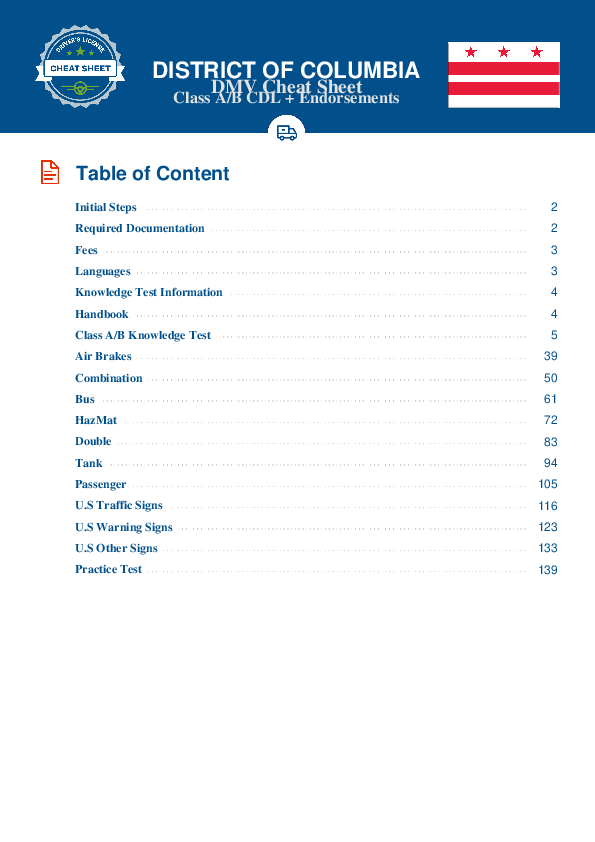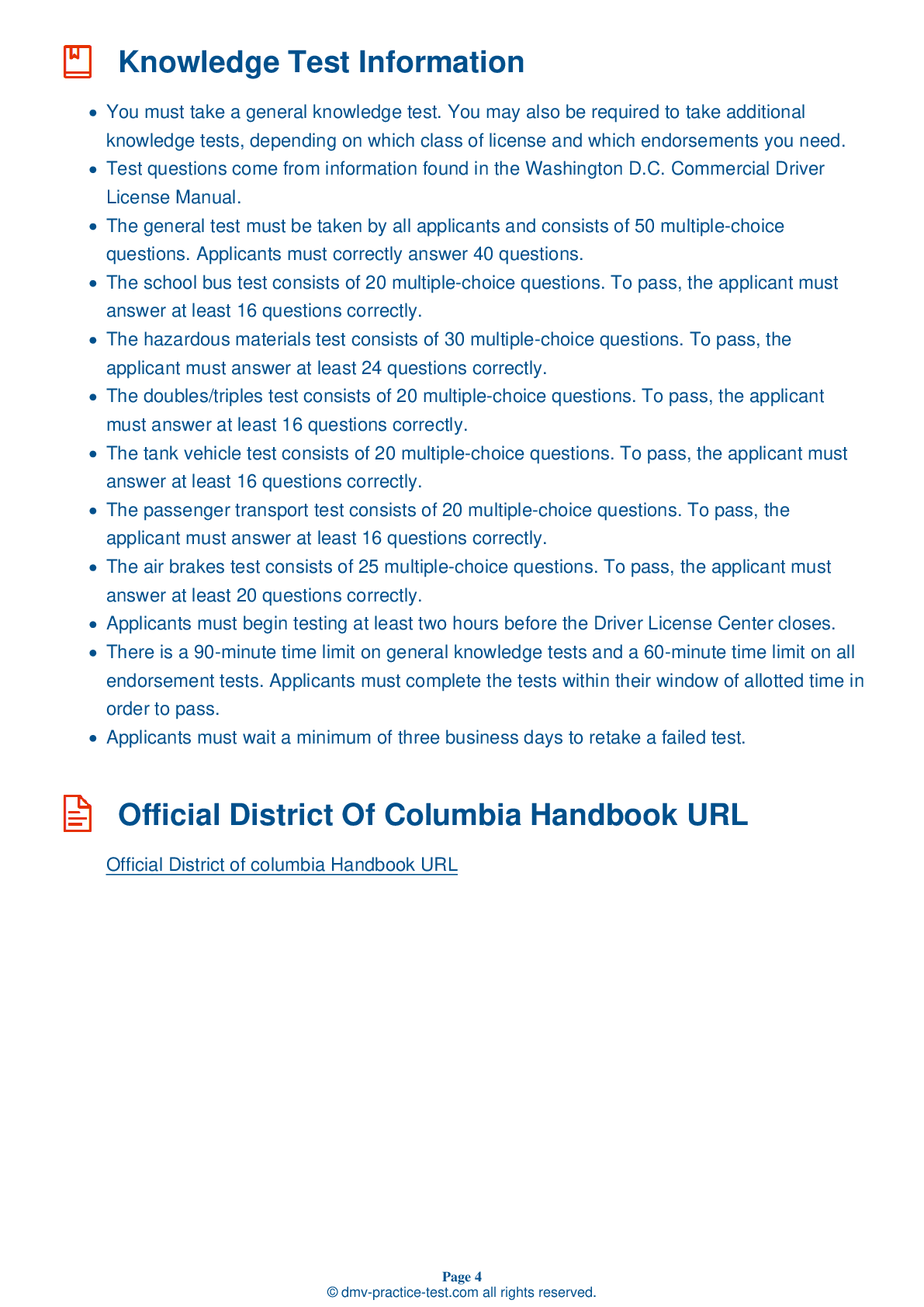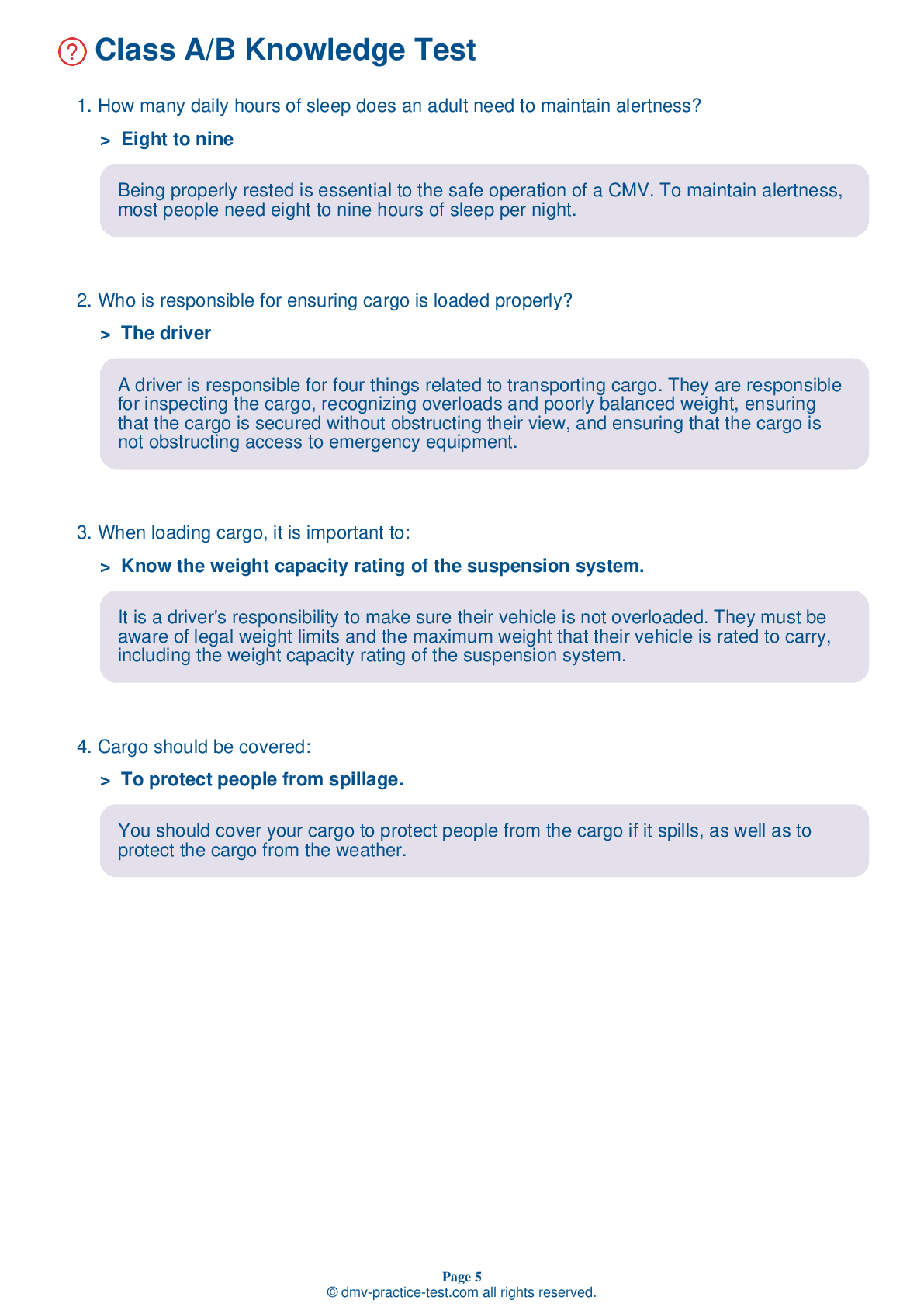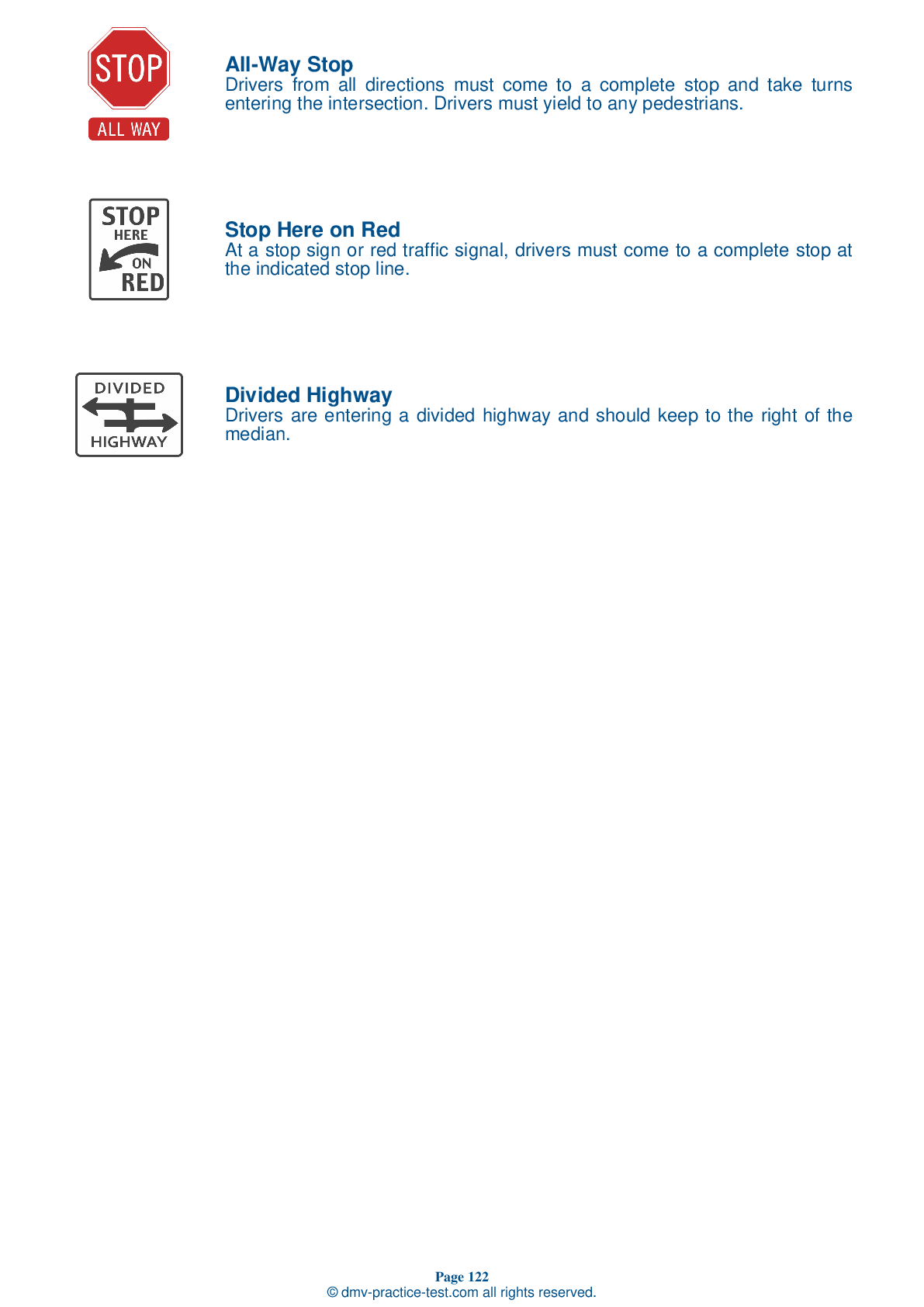Class B Driving Test | District Of Columbia 2026 #1 Page 6 of 7
Train for FREE online with our District Of Columbia class B license test. The official exam test consists of several obligatory parts, with all of them checking your knowledge of different blocks of road rules. If you need to obtain a DC CDL class B permit in 2026, practice as much as possible. Free sample tests published on our website will help you check and improve your knowledge and boost your grades. Please bear in mind that CDL class B requirements may vary from state to state.
36 . While driving, spring brakes are generally held in place by:
While driving, spring brakes are generally held in place by air pressure. If the air pressure gets low enough, the springs will activate the brakes.
37 . To make driving at night easier, you should:
If the interior of your cab is too bright when you are driving at night, you may have difficulty seeing things outside. Keep the interior light off and adjust your instrument lights to the lowest possible level that still allows you to easily read the gauges.
38 . Which of the following is not an example of a driving hazard?
Passing an accident scene can be hazardous because the people involved in the accident may not be watching traffic, and the scene itself may distract other passing drivers. Ice cream trucks can create hazardous conditions because they attract children who may not pay attention to nearby vehicles. Shoppers near the roadway are often paying attention to stores, not passing traffic.
39 . Which of the following is a good rule to follow when making a turn?
Signal well in advance of a turn so drivers behind you are aware of your intentions. Keep the signal on throughout the turn and turn it off once the turn is complete.
40 . During the vehicle inspection test, you will be asked to:
During the CDL vehicle inspection test, you must be able to inspect your vehicle and explain to the examiner what you are inspecting and why.
41 . You may be denied a HazMat endorsement if:
You will be denied a HazMat endorsement, or lose an existing endorsement, if you are not a lawful permanent U.S. resident; you renounce your U.S. citizenship; you are wanted for, under indictment for, or convicted of certain felonies; you are judged as mentally unstable or are committed to a mental institution; or you are deemed to pose a security threat by the Transportation Security Administration (TSA).
42 . What should happen if the air pressure in the braking system's air tanks falls below 60 psi?
On vehicles with air brakes, a low air pressure warning signal will come on if the pressure in the air tanks falls below 60 psi. On large buses, the signal may activate at 80 to 85 psi.
See the exact questions that will be on the 2026 District Of Columbia DMV exam.
99.2% of people who use the cheat sheet pass the FIRST TIME
Lillian MCcranie explains how our CDL study guide was helpful in passing the exam and recommends it to everyone.
Cameron tells us how he purchased the CDL exam, and found it to be a useful tool which helped him pass the exam and find a job.



